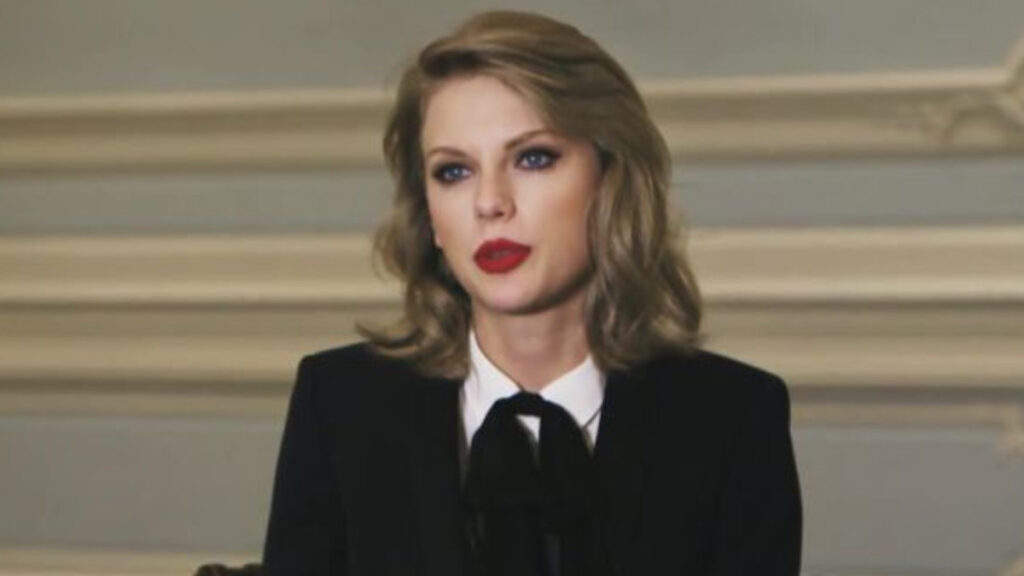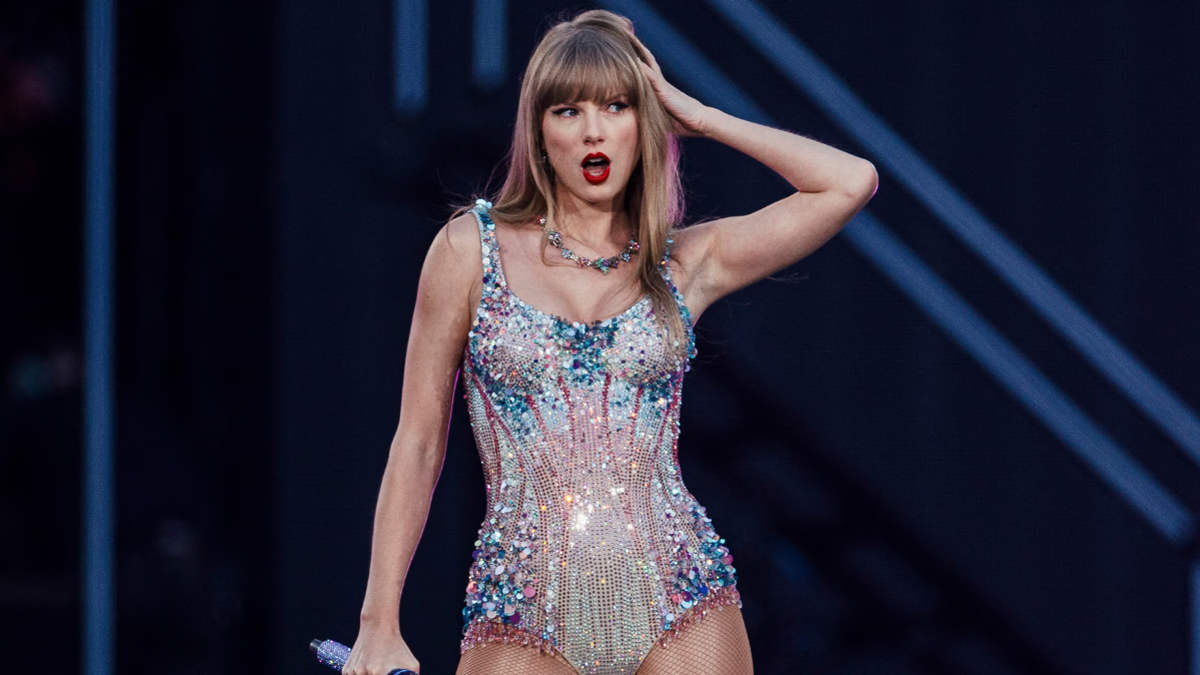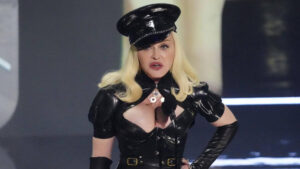In October 2023, headlines lit up with a phrase that once seemed improbable: “Taylor Swift Is Officially a Billionaire.” But this wasn’t just another celebrity wealth milestone — it was a cultural checkpoint. Swift didn’t get there by launching a beauty brand or licensing her name to a luxury handbag line. She earned it through music, touring, strategic ownership, and the kind of grassroots fan loyalty most brands can only dream of.
Her journey to billionaire status isn’t just about numbers — it’s a case study in reclaiming artistic control, rewriting industry rules, and proving that authenticity still sells. Whether you’re a casual listener or a die-hard Swiftie, her financial rise tells a story worth more than just gossip-column gold.
The Billion-Dollar Question — What Is Taylor Swift’s Net Worth in 2025?
As of 2025, Taylor Swift’s net worth is estimated at $1.6 billion. That number places her among a rare echelon of entertainers whose fortunes come primarily from their creative output, not side ventures or passive celebrity endorsements.
But “net worth” doesn’t mean a billion in the bank. It’s a composite: earnings from music, touring, royalties, property holdings, business ownership, and the rising value of her brand. Her Eras Tour alone reportedly pushed her past the billion-dollar mark, but it was years of strategic decisions — like owning her masters and building a fan-fueled business model — that laid the groundwork.
In an era when artists often trade creative control for quick cash, Swift’s financial status is more than impressive — it’s a symbol of what’s possible when talent meets tenacity and ownership.
Touring Her Way to Billions — The Eras Tour Windfall
By the time The Eras Tour wrapped its first leg, it was clear this wasn’t just a concert series — it was an economic engine. Grossing over $1.4 billion globally, the tour became the highest-grossing in history, surpassing even Elton John’s farewell run. But the real marvel wasn’t just the box office — it was how Swift built a vertically integrated empire around it.
Unlike many touring artists, Swift retained full creative and operational control, meaning she reaped a significantly larger share of profits. From multi-tiered VIP ticketing packages to exclusive merchandise lines that sold out nightly, every detail was calibrated for impact. Fans lined up for hours just to enter merch tents — some spending hundreds before hearing a single note.
The tour’s momentum didn’t end at the stage. A cinematic release of The Eras Tour concert film added another $250+ million to the mix, making it the most successful concert film of all time, with Swift self-distributing it to theaters on her terms.
In the age of streaming fatigue and shortened attention spans, The Eras Tour proved that the live experience, when executed with vision and scale, is still one of the most powerful forces in entertainment — and in Swift’s case, a billion-dollar one.
Explore how her tour powered her billionaire leap.

Music Royalties & Mastery — Owning Her Catalog, Literally
When Taylor Swift lost control of her original masters in 2019 due to the sale of Big Machine Records, it sparked more than industry chatter — it ignited a movement. Rather than accept the loss, Swift launched a bold counterplay: re-recording her earlier albums as “Taylor’s Versions,” thereby reclaiming both artistic integrity and royalty streams under her terms.
Here’s why that mattered. Every time a Swift song is streamed, sold, or licensed for film and TV, royalties are paid — and now, she ensures those payments flow to her. Fearless (Taylor’s Version), Red (Taylor’s Version), and subsequent re-recordings have not only charted higher than their originals but also eclipsed them in sync licensing deals, because brands and studios want to align with the artist in control.
Swift once wrote, “Artists should own their work. I just feel very passionately about that.” Today, that principle is a revenue model. By turning a rights dispute into a cultural and financial triumph, Swift didn’t just rewrite her music — she rewrote the playbook.
Also See: Taylor Swift vs Beyoncé: Who Has the Bigger Net Worth in 2025?
Streaming Success & Digital Domination
Taylor Swift doesn’t just release music — she creates digital events. Whether it’s a surprise drop, a cryptic Easter egg hunt, or a re-recorded deep cut going viral on TikTok, her songs rarely rise alone — they ride a wave of fan-fueled momentum. That’s part of why she’s a streaming juggernaut.
On platforms like Spotify and Apple Music, Swift consistently breaks first-day and first-week records. But beyond raw numbers, her catalog has become algorithmically “sticky.” Each release activates old albums, boosts playlist placements, and triggers re-discovery loops. Even casual listeners get pulled in.
Then there’s YouTube — where lyric videos, performances, and short-form content fuel additional traffic. With every album cycle, Swift builds a digital ecosystem that keeps her entire discography in motion.
It’s not just the music — it’s the architecture around it. And Swift, knowingly or not, has become one of the most effective digital strategists in the business.
Merch, Licensing & the Swiftie Economy
Step into any Eras Tour venue hours before showtime, and you’ll likely see a line of fans — not for entry, but for merch. Hoodies, friendship bracelets, signed vinyls — Swiftie commerce is its economy, pulsing with emotion, nostalgia, and limited drops.
But what makes it work isn’t just the merch — it’s the meaning. Fans aren’t buying T-shirts; they’re buying a piece of an era, a lyric that lived through a breakup, or a moment they don’t want to forget. Swift’s team packages that sentiment with obsessive attention to detail, from font choices to fabric feel.
Limited-edition drops, retailer exclusives (like Target’s special editions), and lyric-embedded designs turn every purchase into a ritual. It’s part concert souvenir, part identity badge — and Swift, knowingly, sells it all with the precision of a luxury brand and the warmth of a diary entry.
Real Estate Empire — Coast-to-Coast Holdings
Taylor Swift’s real estate portfolio isn’t a scattershot collection of trophy homes — it’s a carefully curated reflection of her evolving identity, privacy needs, and long-term financial strategy. Across New York, Los Angeles, Nashville, and Rhode Island, Swift owns an estimated $100+ million in property, but each address tells its own story.
Her Tribeca compound, for instance, began as a pair of penthouses in a former warehouse — then expanded into neighboring units, forming a private, paparazzi-proof sanctuary in the heart of Manhattan. In Watch Hill, Rhode Island, her oceanside mansion hosted the now-legendary Fourth of July parties, becoming a stage for both celebrity friendships and fan lore.
These aren’t just places to live — they’re brand extensions, quiet investments, and creative retreats. In an industry where visibility can be risky, Swift has used real estate to shape her narrative while building generational wealth — one zip code at a time.

Businesswoman Behind the Scenes — Investments and Brand Ownership
While Taylor Swift’s stage presence commands global attention, her offstage strategy may be even more impressive. Behind the lyrics and lights is a calculated businesswoman who’s spent over a decade building an intellectual property empire — one trademark at a time.
From “Taylor Swift” and “Swifties” to album titles and lyric phrases, Swift has filed dozens of trademarks, effectively fencing in her brand across merchandise, digital content, and even tour names. It’s a legal shield and a branding masterstroke.
Though she keeps her private investments, well, private, insiders speculate that Swift is a silent backer in select ventures — including those aligned with artist rights and female entrepreneurship. Whether or not she diversifies into tech or VC, one thing is clear: she treats her name, likeness, and narrative as assets to protect — and monetize.
Swift’s business instincts aren’t flashy, but they’re deliberate — and deeply aligned with the message she’s always sung: control your story, or someone else will.
Also See: Taylor Swift’s Business Ventures: Brands, Investments & Their Worth
Taylor vs. The Titans — How She Stacks Up Against Industry Giants
With her 2025 billionaire milestone, Taylor Swift joins an elite circle of entertainers-turned-moguls — but her path diverges in key ways. Rihanna ($1.4B) leveraged the beauty market with Fenty. Jay-Z ($2.5B) built empires in liquor, streaming, and art. Beyoncé ($600M) blended music, fashion, and film with strategic finesse. Swift? She got there primarily through music.
That’s what makes her ascent so rare. Instead of spinning off fashion lines or launching investment funds, Swift’s wealth is rooted in creative output, direct-to-fan experiences, and ownership — of her masters, her tours, her brand. It’s not diversification that built her empire, but deep integration of art and business.
See Taylor Swift’s net worth journey over the years in our timeline.
“I Remember It All Too Well” — A Personal Take on Swift’s Financial Evolution
I’ll admit it — I didn’t always see Taylor Swift’s rise as inevitable. Back in the Fearless days, she felt like a teenage phenom with a strong pen and a big label behind her. But what’s unfolded since has been something else entirely — not just a musical evolution, but a masterclass in self-reinvention, ownership, and resilience.
What strikes me most isn’t the billion-dollar figure — it’s how she got there. She didn’t license her name to perfume or ride the wave of a single product. She went head-to-head with the industry, re-recorded her past, and invited millions of fans to reclaim it with her. That kind of transparency — that trust — is rare in pop culture.
Swift didn’t just build wealth. She built a bond. And honestly, that may be worth more than the billion.
So, Is Taylor Swift a Billionaire?
Yes — Taylor Swift is, by every credible measure, a billionaire. But unlike many in that club, her ascent wasn’t driven by product lines or massive investments. It was powered by music, touring, rights ownership, real estate strategy, and a direct relationship with her fans.
What pushed her past the threshold? The Eras Tour, the re-recordings, her merchandise empire — all executed with fierce control and a deep understanding of her audience.
More than a net worth figure, Swift’s story is a blueprint for what happens when artists own their voice — and everything behind it.
For her full asset breakdown by category, see Taylor Swift’s overall financial empire.
Nishant is a digital strategist and celebrity finance analyst with over 15 years of experience in SEO-driven content. As Founder of TheNetWorths.com, he creates high-authority profiles on wealth, branding, and cultural influence.



















5 thoughts on “Is Taylor Swift a Billionaire? Her Wealth Explained by Category”